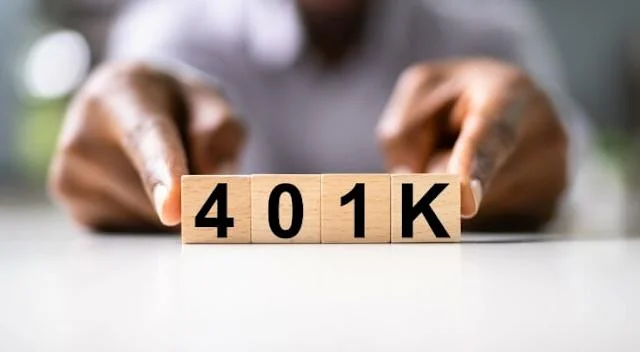The $2.1 Trillion 401k Problem: Analyzing the Systemic Flaw and Its Personal Cost
The $2.1 Trillion Drag: Why 'Forgotten' 401(k)s Are a Systemic Failure, Not a Personal Mistake
The number is, at first glance, difficult to process: $2.1 trillion. That is the latest estimate of assets sitting in what are being called “forgotten” or “left-behind” 401(k) accounts. A new report from the retirement platform Capitalize, in partnership with Boston College’s Center for Retirement Research, places this figure across 31.9 million individual accounts. The immediate narrative is one of personal oversight—a simple case of workers losing track of their own money as they switch jobs, leading to headlines that ask, $2.1 trillion sits in left-behind 401(k) accounts. Could one be yours?
But that narrative is incomplete. It’s a convenient misdirection that frames a massive, systemic inefficiency as millions of individual slip-ups. When a data set reaches this magnitude, individual error ceases to be the primary explanation. What we are looking at is not a memory problem; it is an infrastructure problem. This $2.1 trillion figure is a direct measurement of the friction baked into the American retirement system, a financial drag that quietly siphons future wealth from the very people the system is meant to protect.
The core issue isn't forgetfulness. It's portability. Or rather, the profound lack of it.
The Anatomy of a Multi-Trillion-Dollar Error
Let’s dissect the numbers. The headline figure of $2.1 trillion is up from an estimated $1.7 trillion in 2023. The total assets in these idle accounts grew by roughly 24% in a single year—to be more exact, 23.5%. This is not a static pool of old, dusty accounts; it is a rapidly expanding reservoir of dormant capital. With an average balance of $66,691, these are not trivial sums of money being left behind. They represent significant, life-altering nest eggs for millions of American families.
The system as it stands is an anachronism. In an age where you can transfer your entire digital life from one phone to another in minutes, moving your retirement savings from one employer’s plan to the next remains, as the report notes, “outdated and painful.” The process often involves a labyrinth of paperwork, phone calls, and faxes—yes, faxes. It’s akin to requiring citizens to re-register to vote every time they move to a new apartment. The friction is so significant that for many, the path of least resistance is to simply do nothing, leaving the account orphaned at a previous employer. This isn't laziness; it's a rational response to a poorly designed process.

This lack of portability creates a vacuum where bad things happen. Employers, not wanting the administrative burden of managing accounts for ex-employees, can initiate a “forced rollover.” This often means the funds are moved into a low-interest, cash-equivalent account (sometimes called a Safe Harbor IRA), effectively halting any meaningful growth. The money is safe, but it's also stagnant, missing out on years of compounding returns that are the very engine of retirement savings. Other accounts are simply cashed out, triggering taxes and penalties, and permanently removing the capital from the worker’s retirement horizon. All because the plumbing of the system is fundamentally broken.
The High Cost of Inertia
The consequences of this systemic inertia are not theoretical. They are a direct tax on future wealth. An account languishing in a 1% yield money market fund instead of a market-tracking index fund represents a substantial opportunity cost that compounds destructively over time. Add in the administrative fees that can slowly erode the balance of an unmanaged account, and you have a perfect recipe for wealth destruction.
And this is the part of the report that I find genuinely puzzling. While the paper does an excellent job quantifying the scale of the problem, the proposed solutions feel wildly disproportionate to the size of the crisis. We are presented with a series of databases and clearinghouses—the National Registry of Unclaimed Retirement Benefits, the Department of Labor's new Lost and Found Database, Missing Money. These are, essentially, digital search parties. They place the onus of recovery back on the individual, asking them to become forensic accountants for their own scattered financial histories. It’s a patch, not a fix.
The industry’s flagship initiative, an auto-portability network for small accounts, is a step in the right direction. But its current scope, limited to accounts under $7,000, addresses only a fraction of the problem. The average orphaned account holds nearly ten times that amount. Why isn’t this technology being scaled for all accounts? What is the technical or logistical barrier preventing a seamless, automated rollover for a $60,000 account when it can be done for a $6,000 one? The report doesn't offer a clear answer, but one can speculate. The current fragmented system generates fees for record-keepers and asset managers who hold these idle funds. There is a quiet, but powerful, financial incentive to maintain the status quo.
The core methodological question is how "forgotten" is truly defined. The data comes from a firm whose business model is built on solving this very problem, which doesn't invalidate the findings but does suggest a certain framing. Is an account left intentionally with a previous employer because of good investment options considered "forgotten"? The line between deliberate choice, procrastination, and genuine unawareness is likely blurrier than the data suggests. Still, the sheer scale of the number points to a failure that transcends individual intent.
This Isn't Lost Money; It's an Inefficiency Tax
Let's be clear. That $2.1 trillion isn't just a collection of misplaced financial Post-it notes. It is a quantifiable measure of the tax that an archaic, fragmented, and needlessly complex system levies on the American worker. Framing this as a problem of individual forgetfulness is a corporate sleight of hand. The real issue is the absence of a universal, automated, and mandatory portability framework that follows an employee from job to job as seamlessly as their Social Security number. Until the industry is forced to build a system that prioritizes the saver’s capital over its own administrative convenience, this number won't just persist—it will grow. And we’ll be reading this same report next year, with an even bigger number in the headline.
-

Warren Buffett's OXY Stock Play: The Latest Drama, Buffett's Angle, and Why You Shouldn't Believe the Hype
Solet'sgetthisstraight.Occide...
-

The Great Up-Leveling: What's Happening Now and How We Step Up
Haveyoueverfeltlikeyou'redri...
-

The Future of Auto Parts: How to Find Any Part Instantly and What Comes Next
Walkintoany`autoparts`store—a...
-

Applied Digital (APLD) Stock: Analyzing the Surge, Analyst Targets, and Its Real Valuation
AppliedDigital'sParabolicRise:...
-

Analyzing Robinhood: What the New Gold Card Means for its 2025 Stock Price
Robinhood's$123BillionBet:IsT...
- Search
- Recently Published
-
- DeFi Token Performance & Investor Trends Post-October Crash: what they won't tell you about investors and the bleak 2025 ahead
- Render: What it *really* is, the tech-bro hype, and that token's dubious 'value'
- APLD Stock: What's *Actually* Fueling This "Big Move"?
- Avici: The Real Meaning, Those Songs, and the 'Hell' We Ignore
- Uber Ride Demand: Cost Analysis vs. Thanksgiving Deals
- Stock Market Rollercoaster: AI Fears vs. Rate Hike Panic
- Bitcoin: The Price, The Spin, & My Take
- Asia: Its Regions, Countries, & Why Your Mental Map is Wrong
- Retirement Age: A Paradigm Shift for Your Future
- Starknet: What it is, its tokenomics, and current valuation
- Tag list
-
- Blockchain (11)
- Decentralization (5)
- Smart Contracts (4)
- Cryptocurrency (26)
- DeFi (5)
- Bitcoin (31)
- Trump (5)
- Ethereum (8)
- Pudgy Penguins (6)
- NFT (5)
- Solana (5)
- cryptocurrency (6)
- bitcoin (7)
- Plasma (5)
- Zcash (12)
- Aster (10)
- nbis stock (5)
- iren stock (5)
- crypto (7)
- ZKsync (5)
- irs stimulus checks 2025 (6)
- pi (6)
- hims stock (4)
- kimberly clark (5)
- uae (5)
